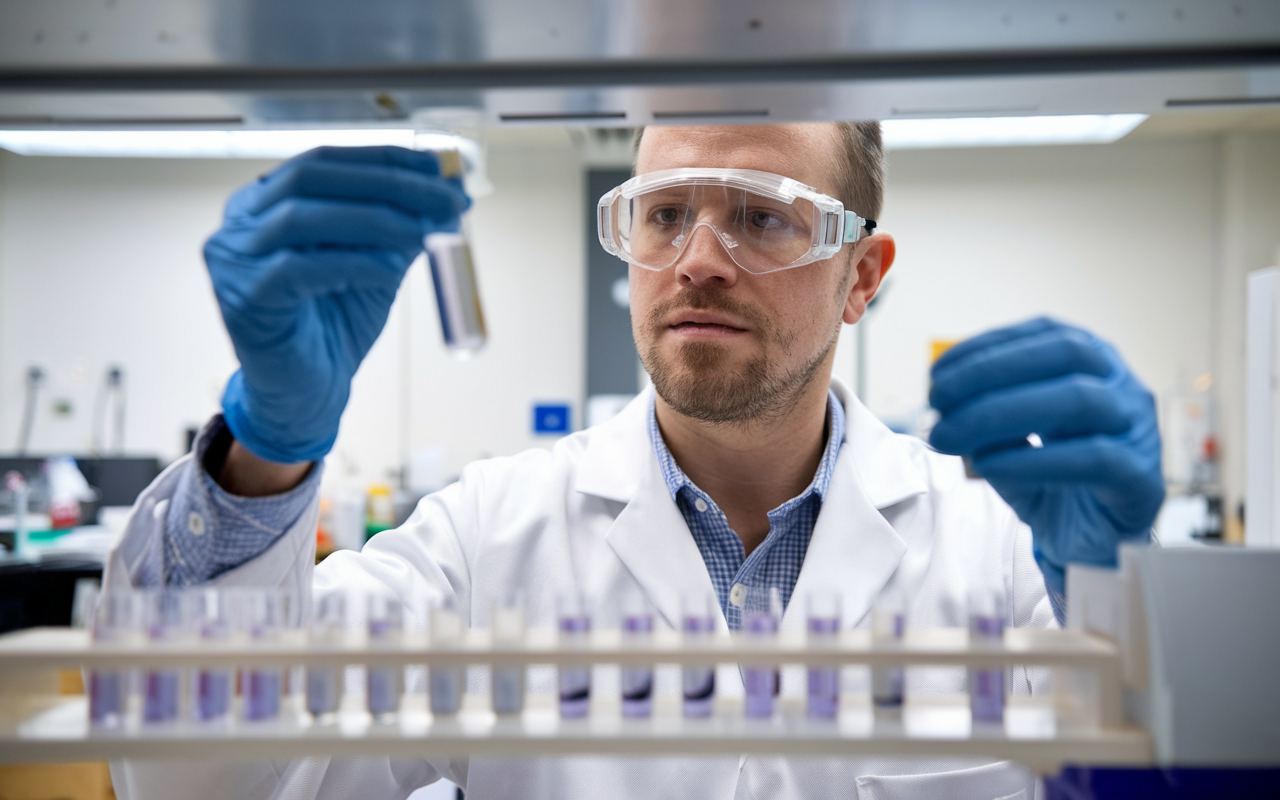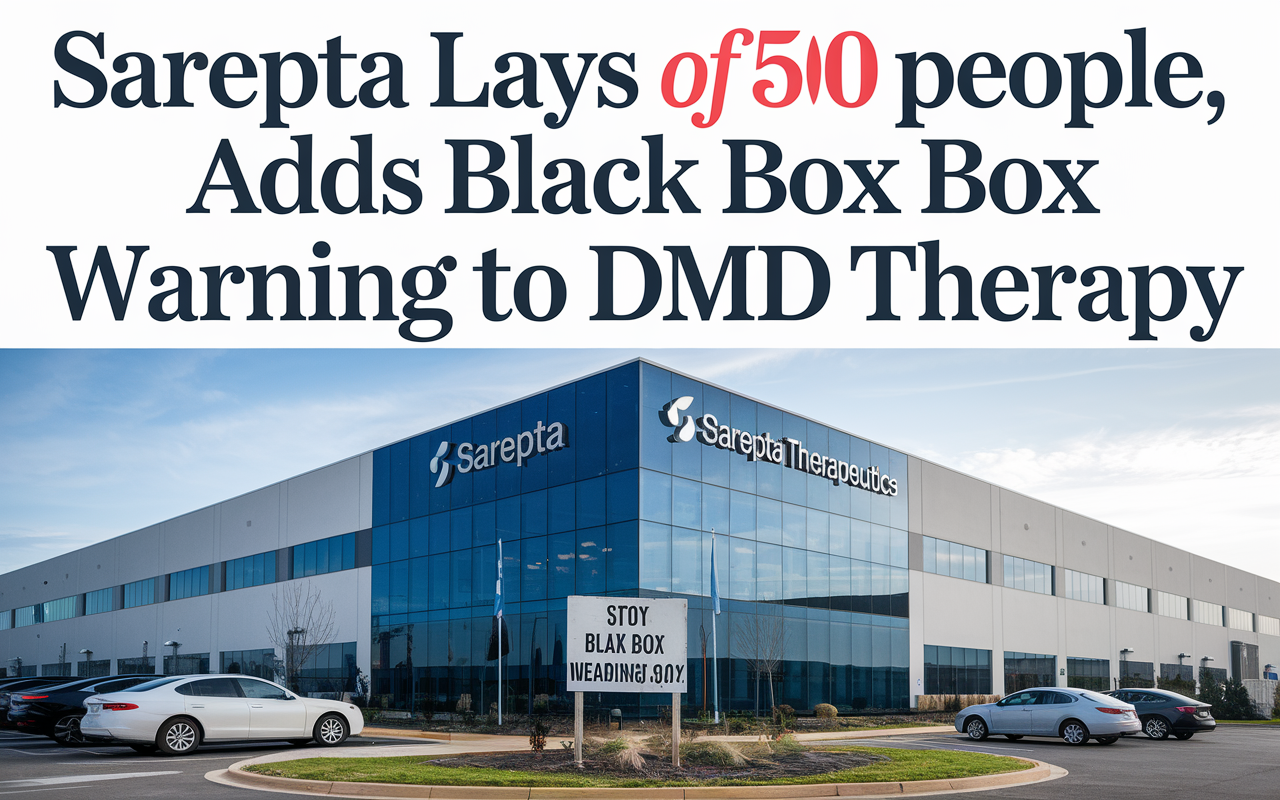Greetings, BioPharmaPulse Readers
Welcome to another edition of BioPharmaPulse, where we bring you the heartbeat of the latest in biopharmaceutical innovation. Let's delve into the breakthroughs shaping our industry!
What's in this issue:
- 🚀 AstraZeneca's amyloidosis drug faces Phase 3 hurdles
- 💊 Debiopharm's strategic licensing of Repare’s cancer drug
- 🧪 Sarepta's restructuring after gene therapy setbacks
- 🧬 Medicaid's new program for sickle cell gene therapies
- 📊 FDA's scrutiny of GSK’s multiple myeloma drug
Quote of the Day
"Innovation distinguishes between a leader and a follower." – Steve Jobs
Latest News & Developments
🧬 AstraZeneca's Amyloidosis Drug Anselamimab Fails in Phase 3 Trials (2 minute read)

Rundown: AstraZeneca announced that its amyloidosis drug, anselamimab, did not achieve statistical significance in primary endpoints across two Phase 3 clinical trials. The drug was initially projected to generate peak revenues of up to $3 billion, but these results cast doubt on its future prospects.
Key Points
- ❌ Anselamimab missed primary endpoints in two late-stage trials
- 🧪 Trials focused on light chain amyloidosis, a rare disease
- 💡 Some benefits observed in specific patient subgroups
- 🔍 AstraZeneca may reassess its strategy for this program
Why it matters: This setback highlights the challenges in developing treatments for rare diseases. Despite the hurdles, understanding the trial outcomes can inform future research directions and pave the way for innovative solutions.
💊 Debiopharm Licenses Repare’s First-in-Class Cancer Drug for $10M Upfront (1 minute read)

Rundown: Debiopharm has secured global rights to lunresertib, a first-in-class PKMYT1 inhibitor from Repare Therapeutics, with an upfront payment of $10 million. This strategic move could potentially lead to milestone payments up to $257 million, reflecting significant confidence in the drug's potential.
Key Points
- 💰 $10 million upfront payment to Repare Therapeutics
- 🔬 Lunresertib targets PKMYT1, a novel cancer pathway
- 🌐 Debiopharm gains global rights to develop and commercialize
- 📈 Potential milestone payments totaling $257 million
Why it matters: The collaboration underscores the importance of strategic partnerships in advancing oncology treatments. By targeting novel pathways, there's hope for more effective therapies for cancer patients worldwide.
🧪 Sarepta Lays Off 500 People After Duchenne Gene Therapy Setbacks (1 minute read)

Rundown: Sarepta Therapeutics is restructuring, cutting approximately 500 jobs following safety concerns over its Duchenne muscular dystrophy (DMD) gene therapy. The company is also pausing research on other gene therapies and adding a black box warning to its DMD treatment.
Key Points
- 🏭 Layoffs affecting about one-third of the workforce
- ⚠️ Adding black box warning to DMD gene therapy
- ⏸️ Pausing research on limb-girdle muscular dystrophy therapies
- 💰 Aiming to save $400 million annually
Why it matters: This development highlights the complexities and risks involved in gene therapy. While setbacks are challenging, they also provide critical insights that can lead to safer and more effective treatments in the future.
Question of the Day
🤔 How do you think biopharma companies should address setbacks in late-stage trials?
Trending
🩺 33 States Pick Up CMS Program to Pay for Sickle Cell Gene Therapies
- States representing 84% of Medicaid beneficiaries join an initiative to negotiate pay-for-performance deals on sickle cell gene therapies, potentially improving access to groundbreaking treatments.
🔎 FDA Questions Safety of GSK’s Multiple Myeloma Drug
- Ahead of an advisory committee meeting, the FDA raises concerns about eye-related side effects associated with GSK's Blenrep, questioning its proposed dosing regimen.
Industry Insight
🔬 The Role of Strategic Licensing in Biopharma Innovation
In the dynamic world of biopharma, strategic licensing plays a crucial role in bringing innovative therapies to market. Companies like Debiopharm and Repare Therapeutics demonstrate how partnerships can accelerate development and expand global reach.
By collaborating, companies can leverage each other's strengths, share risks, and ultimately deliver cutting-edge treatments to patients faster. Staying open to alliances could be the key to overcoming industry challenges and driving future breakthroughs.
Quick Hits
📰 Moderna’s Latest Approval Again Reveals FDA Rift Over COVID Vaccines (1 minute read)
- FDA reviewers disagree on the scope of Moderna's COVID vaccine approval in young children, highlighting internal debates over vaccine use.
📰 Johnson & Johnson Reports Slumping Stelara Sales Due to Biosimilar Competition (1 minute read)
- J&J's blockbuster Stelara faces a 42% drop in global sales amid growing biosimilar competition, impacting the company's revenue.
📰 PureTech CEO Steps Down After Longtime Chair's Departure (1 minute read)
- PureTech Health faces leadership changes as CEO Bharatt Chowrira resigns, following the departure of the company's chair.
📰 FDA to Revoke 52 Obsolete Standards of Identity for Food Products (1 minute read)
- FDA plans to eliminate outdated food standards, streamlining regulations and fostering innovation in food product development.
Wrap Up
Thank you for joining us on this exploration of the latest biopharmaceutical innovations. It's your curiosity and passion that drive this industry forward. Let's continue to embrace the challenges and opportunities ahead, together.
Stay tuned for more developments, and feel free to share BioPharmaPulse with colleagues who share your enthusiasm for shaping the future of healthcare.
Until next time,
Elliot Reeves | BioPharmaPulse
😊 How did you like today's email?
- 😍 Loved it
- 🙂 It was OK
- 😕 Could be better
